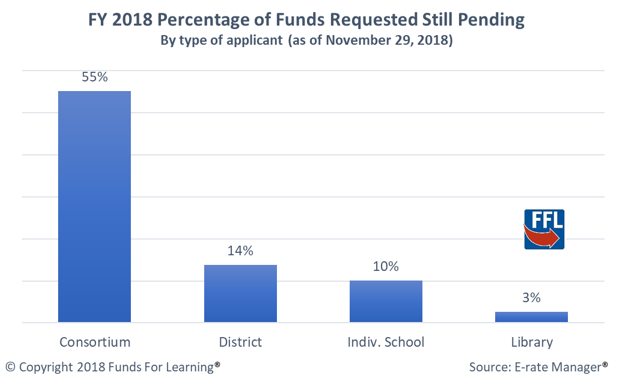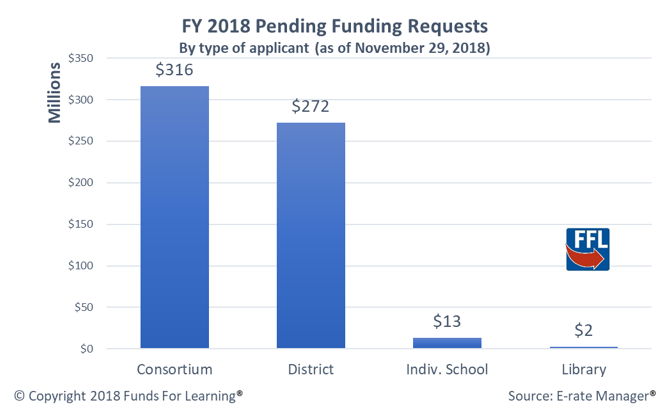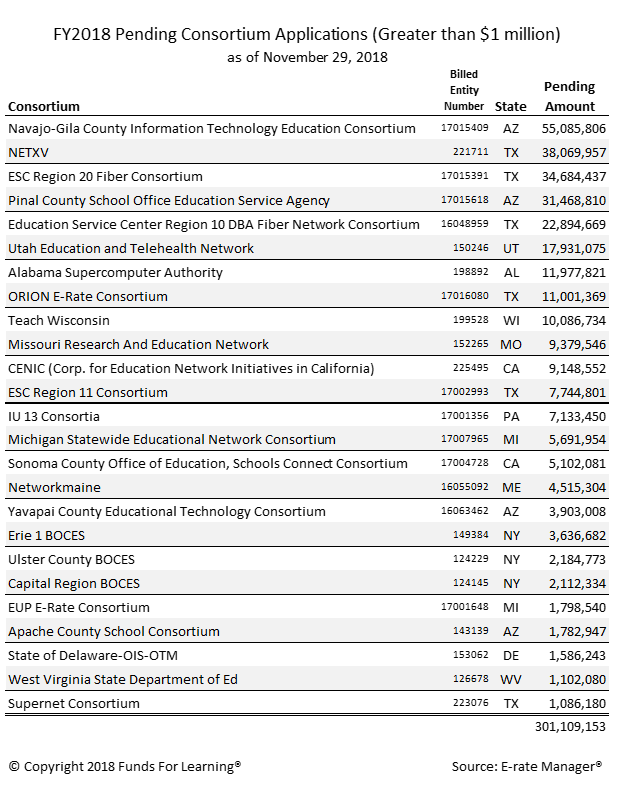A key feature of the E-rate program is the opportunity for state and regional entities to submit a consortium application. Consortia bring a host of advantages, such as better buying power and more options from which to choose; and, for busy administrators, a consortium can help ease the burden placed on individual members. Schools, libraries, cities, counties and entire states all stand to benefit. Our students and library patrons deserve the best we can give them, and consortia are here to help.
Yet, E-rate regulations are creating excessive delays for consortia applicants. These delays are dampening the benefits of consortia and causing some applicants to retreat to individual applications, negating all the many benefits they stand to receive. Why is this? The following two charts tell the story. Currently, 55% of funds requested by consortium applicants are still pending. This totals $316 million, more than the pending amount of school districts, individual schools, and libraries combined.


Below is a list of the 25 consortium applicants who have at least $1 million in requested support still pending in FY2018.

The FCC can act to fix the regulations and procedures that tie up these applications. No individual, and certainly no state full of individuals, should have their Internet access delayed or denied simply because of a consortium application. Collective purchasing can be a win-win for everyone, but only if the E-rate regulations are fixed to stop penalizing applicants for pooling their resources.
